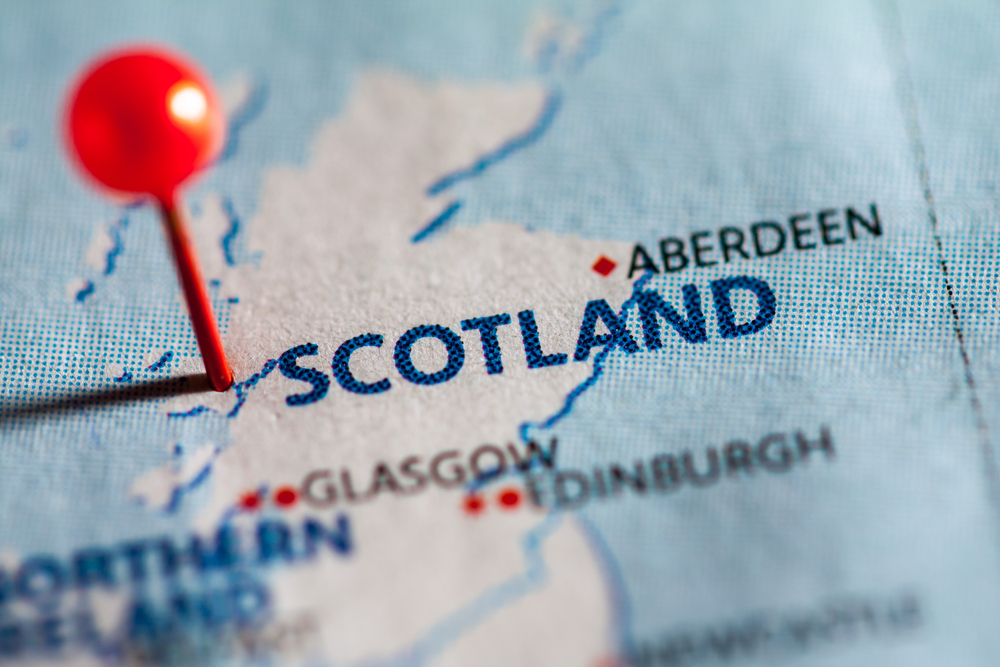What would be the implications should Scotland vote ‘YES’?
Next week the Scottish nation will take to the polls to decide whether to remain part of the UK or go it alone. Although arguments have been made from both sides of the border about who will be better and worse off, the two camps are pretty evenly matched. There are a lot of grey areas that will be impossible to predict the outcome of until (and if) Scotland votes yes but I have tried to look at some of the potential implications based on what we know so far.
The referendum itself
The referendum is due to take place on 18th September.
A new opinion poll on Scottish independence has found the no vote back in the lead at 53% of voters, suggesting the sudden surge in backing for independence has subsided.
How safe will my investments be?
Obviously, security of money is absolutely key to investors anywhere in the world. Although the SNP has promised to match the UK standard in terms of financial regulation and compensation, it id debatable whether or not this can actually be executed.
No provisions or process’ have been put in place yet to ensure that there will be the promised safety nets in place and nobody really knows who or what the financial ombudsmen would be. Without the actual ‘YES’ vote, these things are very hard to plan for as they currently fall under the jurisdiction of the Financial Conduct Authority which is, of course, UK based and does not deal with foreign companies.
Scottish banks total liabilities are estimated to be three times more per capita than that of the UK. Perhaps more worryingly, they are also about 30% higher per capita than Icelandic banks before the huge 2008 crash which saw all three of the largest state owned commercial banks completely collapse.
What will be the currency?
It has been very well documented that George Osbourne has indicated that if Scotland gets the ‘Yes’ vote, they will almost certainly not be using sterling as their currency. It is difficult to see how Scotland could incorporate the Euro as again, EC President Jose Manuel Barroso has stated that this will be impossible. This would mean potentially having a Scottish pound which would be pegged to either the Euro or Sterling. If it is pegged to the Euro, UK investors with money in Scotland will face a currency risk, as will Scottish investors with monies in the UK.
Will interest rates rise or fall?
It is expected that Independent Scotland will have higher interest rates than today and as such, it could become very attractive for people to save money in Scotland. However, with the currency risk taken in to account, the real gains could actually be a lot less. This is a pretty grey area and will need some clarification.
How will tax be treated?
Alex Salmond has vowed to cut corporation tax by 3% but similarly to a few of his pledges, there are many experts who are a little confused and dubious about how this can be achieved and continued over a period of time. North Sea oil reserves are not finite, they will at some stage run out and with it, a huge amount of Scotland income. In order to compensate for this, taxes would have to increase and spending would have to decrease.
As well as this as stated by the IFS; “Scotland’s population is rising faster than the rest of the UK. Pension bills will rise,taxes will have to go up or spending be cut, and the sooner it makes adjustments the easier it will be”.
What about my pensions in Scotland?
First of all, for faltering schemes in Scotland, there will be no Pension Protection Fund as this was set up to protect pension scheme members in the UK. As such, one would imagine that Scotland would find some kind of alternative.
Again, pensioners may be liable to currency risk if part of their pension was accrued under UK law and some under Scottish law. How these would be affected in draw down is still to be seen and under which set of scheme rules. One thing is for certain, companies with employees in both Scotland and the rest of the UK are going to have to fork out more money to record, distribute and administer the differences in the schemes and payroll systems.
For Private pension investors, these costs would be borne by the investors themselves which will see the overall costs of their pensions increase and therefore reduce their retirement pot.
What about my UK ISA?
An ISA is a UK savings scheme for UK residents. You can not have an ISA even if you are from the UK but living abroad. This means that ISA’s would not be permitted for residents of an Independent Scotland.
Will there still be free University Education?
Yes….However in a strange twist, the EU may also force UK students are also offered free tuition fees in Scotland’s Universities as the rest of the EU already has these rights.
And Finally, Some good news!!
Passenger duty costs will eventually be abolished by Scotland which will mean cheaper flights and perhaps even those south of the border prepared to travel to Scotland in order to take advantage of this.
In either case we can expect to hear a lot more about this in the next few days and one thing is for certain….It should make for an exciting night on September 18th!

